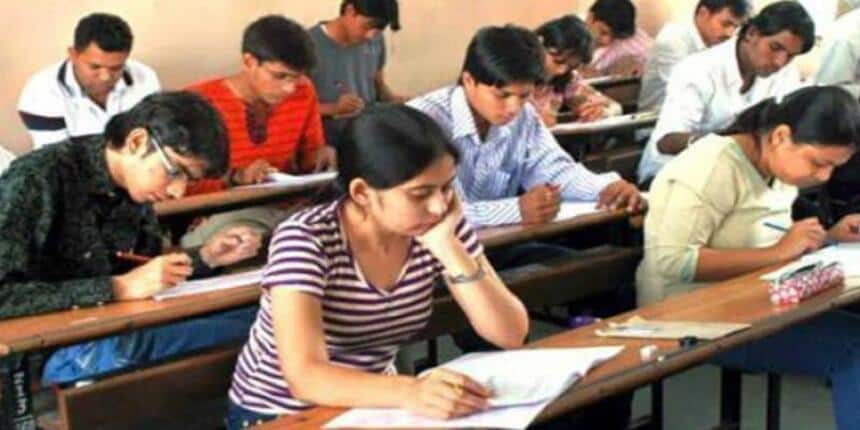National Education Day 2024: History, significance and why is it celebrated?
Alivia Mukherjee | November 11, 2024 | 04:18 PM IST | 3 mins read
National Education Day is observed annually on November 11 to honor Maulana Abul Kalam Azad, who was India’s first education minister.

NEW DELHI: National Education Day is celebrated in India every year on November 11 to honor the birth anniversary of Maulana Abul Kalam Azad, India’s first minister of education. In addition to serving as India's first minister of education, he was also the youngest president of the Indian National Congress (INC).
Additionally, Maulana Abul Kalam Azad has contributed to the establishment of and the University Grants Commission (UGC) and All India Council of Technical Education (AICTE). As per Indian Express report, in 1920, Maulana Abul Kalam Azad was elected to the foundation committee for establishing Jamia Millia Islamia in Aligarh, Uttar Pradesh. He played a role in shifting the university to New Delhi in 1934, and today, the main gate of the campus is named in his honor.
National Education Day 2024: History
The Indian government officially designated November 11 as National Education Day in September 2008 to commemorate the birth anniversary of Maulana Abul Kalam Azad.
The inaugural celebration of National Education Day took place on November 11, 2008, at Vigyan Bhawan in New Delhi, with then-president Pratibha Patil presiding over the event. Since then, the day has been observed across the nation to honor Azad’s contributions to education and highlight the importance of education in empowering individuals and transforming society.
Aligning academic programmes with industry needs
Kalpesh Banker, managing partner at EduShine Search Partners, emphasized the need for a hands-on approach in learning systems on National Education Day. He highlighted the importance of aligning academic programs with industry needs, suggesting that higher education institutions should foster collaborations with businesses to encourage practical learning and entrepreneurship
Contribution from all stakeholders
Banker said, “To make our education system more dynamic, all stakeholders in the education ecosystem must come together and contribute to the all-round development of students. While academia and corporations should focus on integrating curriculum with internship opportunities, policymakers must develop policies to encourage innovation, startups, and venture creation among students in higher education institutions. In sum, it’s only through the combined efforts of all stakeholders that we will achieve new heights of excellence in our education ecosystem and take our rich legacy forward.”
Also read IMI Delhi adopting ‘comprehensive branding strategy’ to improve NIRF rank among b-schools
Speaking on National Education Day, Bibhu Prasad Das, co-founder and CEO, Propelld said "India’s ambition to become a $10 trillion economy by 2030 will rely heavily on creating a robust, highly-skilled workforce, with education access as a cornerstone of this vision.
According to Das, Propelld is addressing the education finance gap, especially in Tier 2 and Tier 3 cities where demand for skill-building is high but financing options are limited. The company has already provided digital loans to over 332,000 students, many from underserved areas.
“Propelld’s strategy aligns with government targets for skill development and economic inclusion, enabling the talent pipeline necessary for India’s long-term growth. We see our role as critical to empowering a generation of skilled workers,” Das further added.
National Education Day 2024 celebration
The day is marked with various activities nationwide, including events in schools, colleges, universities, and government institutions. Here’s how it’s commonly celebrated:
Educational programs and events
Schools, colleges, and universities across India host seminars, discussions, and workshops focused on education reform, literacy, and the vision of Maulana Azad. Institutions may organize essay-writing and speech competitions, where students delve into topics like the importance of education, educational rights, and Azad's contributions.
Public awareness campaigns
Community awareness initiatives often include rallies, street performances, and poster displays that highlight the importance of accessible and quality education for all. These campaigns aim to encourage discussions around the role of education in nation-building.
Cultural events and tributes
Cultural academies like Sahitya Akademi and Lalit Kala Akademi, established under Azad's guidance, sometimes hold special events honoring his impact. These may include cultural performances, exhibitions, or storytelling sessions that celebrate Azad’s contributions to art, science, and education.
Government acknowledgments and honors
At various levels, government representatives and public figures deliver speeches recognizing the importance of education and reiterate commitments to educational equity.
Youth engagement and literacy initiatives
In many states, NGOs and educational bodies organize literacy drives, especially for adult education and underprivileged youth, to echo Azad’s vision of education as a tool for social upliftment. These initiatives aim to improve literacy rates and encourage skills-based learning to empower communities.
Follow us for the latest education news on colleges and universities, admission, courses, exams, research, education policies, study abroad and more..
To get in touch, write to us at news@careers360.com.
Next Story
]Despite good record, SRCC’s PGDM in Global Business Operations faces degree hurdle
Shri Ram College of Commerce’s PGDM course in global business is 25 years old. Despite the low fee, high interest and strong placements, it remains a diploma. Principal Kaur speaks about why it should be an MBA degree, NIRF rankings and more.
Shradha Chettri